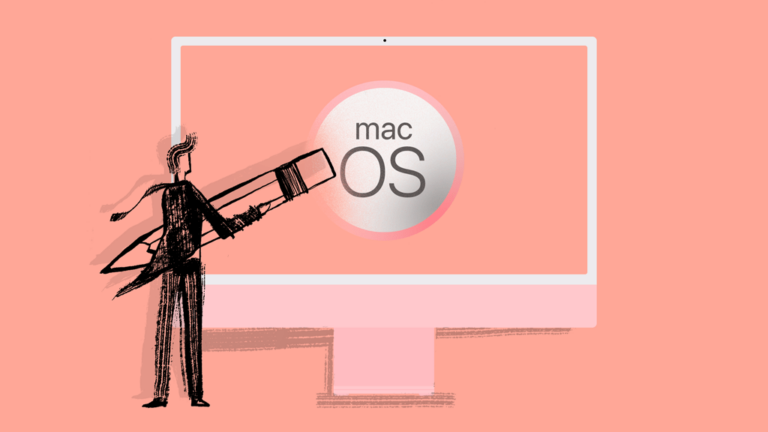Why Apple Devices Are Harder to Manage Than You Think
Apple devices are beloved for their intuitive user experience, but for IT teams, managing Macs, iPhones, and iPads in a business environment can be harder than you think. As Apple adoption grows in the enterprise, many internal IT departments discover unexpected challenges. From limited visibility into devices to tools that don’t scale, these pain points can turn Apple device management into a major headache.
If you’re an IT manager stretched thin trying to wrangle a fleet of Apple hardware, you’re not alone. In this post, we’ll explore why managing Apple devices is so challenging and validate the frustrations IT teams face — and how a smarter approach can make things easier.
Fragmented Visibility Across Your Apple Fleet
One of the first challenges IT admins encounter is fragmented visibility. Unlike Windows PCs on a domain, Apple devices often don’t integrate neatly into existing management tools. You might find yourself jumping between different consoles for Mac vs. iOS management, or worse — not knowing the real-time status of many devices at all.
Why Fragmented Visibility Is a Problem
Traditional MDMs usually rely on periodic check-ins, meaning you only see a snapshot of device status, not real-time information. This creates massive blind spots, making IT teams reactive instead of proactive.
Platforms like Microsoft Intune, Cisco Meraki or Ivanti offer some support but are often criticized for limited Apple functionality and clunky interfaces.
A Better Approach: Real-Time Visibility
Modern solutions like Addigy maintain live connections with devices, enabling continuous updates, real-time compliance checks, and instant remote actions. With always-on visibility, IT teams can trust that their Apple fleets remain secure and healthy without guessing or manual spot-checks.
Inconsistent Compliance and Security Gaps
Fragmented visibility naturally leads to compliance issues. Many IT leaders admit: “I can’t trust that my fleet is secure unless I check every device manually.”
The Risks of Inconsistent Compliance
Devices can fall out of compliance in between check-ins, creating unseen security vulnerabilities. Without continuous enforcement of policies like CIS Level 1 or endpoint protection requirements, companies expose themselves to risks like:
- Missed security patches
- Disabled encryption
- Outdated antivirus software
- Non-compliant configurations during audits
How to Solve Compliance Challenges
To eliminate gaps, IT needs continuous policy enforcement. Platforms like Addigy perform real-time compliance monitoring and auto-remediation if any drift is detected — keeping your fleet audit-ready without constant manual policing.
High Manual Overhead for IT Teams
Managing Apple devices shouldn’t feel like a full-time job — but often it does, especially for Lean IT teams managing 100–500 users.
Why Traditional Tools Cause Operational Inefficiency
Legacy MDMs often require excessive manual effort:
- Writing custom scripts
- Chasing updates manually
- Using separate tools for remote support
- Navigating non-intuitive interfaces
Solutions like Jamf Pro are powerful but overwhelming for smaller teams, while Intune often lacks sufficient Apple-centric control out of the box.
Streamlining Apple Management with Automation
Addigy focuses on automation-first workflows to dramatically reduce overhead:
- Policy-based configurations without scripting
- Auto-remediation of common issues
- Built-in remote access for immediate end-user support
- One intuitive dashboard to manage Macs, iPhones, and iPads
The result: more time for strategic projects, less time babysitting your MDM.
Inflexible Tools and One-Size-Fits-All Solutions
Another hidden hurdle is tool inflexibility. Many MDM solutions force you into their workflows instead of adapting to yours.
Common Problems with Inflexible MDMs
- Complex onboarding that requires consultants
- Limited customization options
- Poor integration with Apple Business Manager (ABM)
- Complicated policy updates across locations
Legacy platforms like Jamf or free tools like Intune often lack the flexibility needed to keep pace with real-world Apple management demands.
Flexible Management for Growing Teams
Modern solutions (like Addigy) provide:
- Cloud-native onboarding that’s fast and simple
- Granular role-based access for multi-location support
- Native integration with ABM and Apple frameworks
- Customizable policies for different groups or roles
Your MDM should scale with you — not slow you down.
Tools That Don’t Scale with Growth
It’s one thing to manage 20 devices. It’s another to manage 200+ devices across multiple locations, departments, and subsidiaries.
Scaling Challenges with Traditional MDMs
Growing organizations often find that their tools can’t handle:
- Multi-entity management
- Delegated admin control
- Bandwidth issues for patching at scale
- Consolidated visibility across hundreds of devices
As your Apple fleet grows, you need a solution that grows with you.
How Addigy Handles Growth
Addigy is built for multi-tenant management, allowing you to:
- Manage multiple companies or locations under one roof
- Integrate with multiple ABM instances
- Maintain real-time compliance visibility across thousands of devices
- Scale seamlessly without server upgrades or expensive consultants
The right Apple MDM helps your IT infrastructure mature alongside your business.
A Better Way to Manage Apple Devices
Apple device management has traditionally been harder than IT teams expected — but it doesn’t have to stay that way.
- Real-time visibility
- Always-on compliance enforcement
- Automation that reduces manual overhead
- Flexibility to match your organization’s workflows
- Scalable architecture that grows with you
Solutions like Addigy were built to solve these pain points. No workarounds. No compromises.
Ready to Simplify Your Apple IT Management?
Managing Apple devices doesn’t have to be a burden. If you’re ready to move from firefighting to future-proofing, it’s time to explore a better way.
Learn more about Addigy’s Apple MDM platform — or request a personalized demo today.
Experience how easy, flexible, and secure Apple device management can be — and free up your IT team to focus on what matters most.






